Immigration
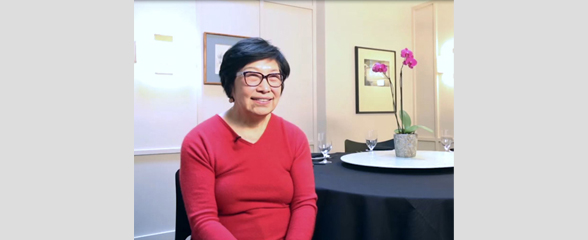
2016.037.009 Oral History Interview with Susana Foo 2015/07/09
Susanna Foo talks to MOCA about moving from place to place during her childhood in China as well as during her adulthood in the United States. She discusses attending school and working as a librarian before developing an interest in cooking which led her to become a chef. She shares her experiences at her familys struggling restaurant and how her studies at the Culinary Institute of America helped her turn it around and ultimately led to her opening another restaurant and even writing her own cookbooks. She concludes by sharing her thoughts on the importance of Chinese food to Chinese culture and the diverse influences that have formed her own eclectic cooking style.
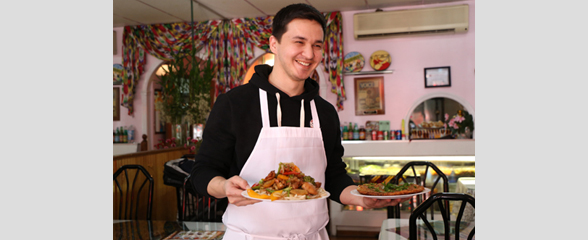
2016.037.017 Oral History Interview with Doniyar Sobitov, 2016/03/29
Doniyar Sobitov was raised in Tashkent, Uzbekistan and moved to New York City in 2007 with his father and brother. His family opened their Halal Uzbek restaurant called Café Kashkar together in Brooklyn. Café Kashkars food is based on cuisine from the Kashgar region, a city in the western side of Chinas Xinjiang province. During this oral history interview, Sobitov describes his childhood in Tashkent, learning to cook with his father, and his aspiration to attend culinary school in China eventually. He goes on to explain that food is not only an important aspect of Uzbekistan culture, but also a means for life and survival for his family. Sobitov lives in the United States with his father, brother, and sister, but his mother, wife, and two year old child still live in Tashkent, a division that is difficult for his family. Describing the multilingual neighborhood in which Café Kashkar is located, Sobitov explains that he speaks four languages in addition to english to communicate with his diverse customer base: Turkish, Uzbek, Russian, and Uyghur. He emphasizes the similarities between Uyghur and Chinese food, describing them as “basically the same thing†and adds that Cafe Kashkar imports some of its key ingredients from Xinjiang.
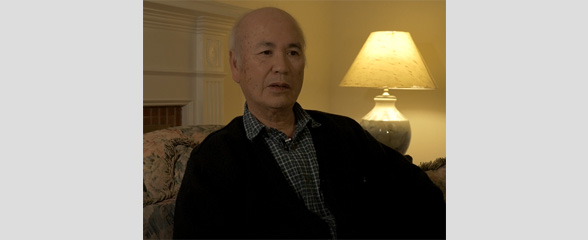
2016.037.030 Oral History Interview with Ho-chin Yang and Ellen Yang 2015/12/15
This oral history focuses on the culinary practice of Ho-chin Yang. He discusses foods that he ate while growing up and moving to the United States. He reflects on the difference between Chinese and American food. Yang was first a language teacher then transitioned into a restaurant owner and cook at his restaurant the Home Plate Café. He later went on to teaching and instructed cooking and language classes.
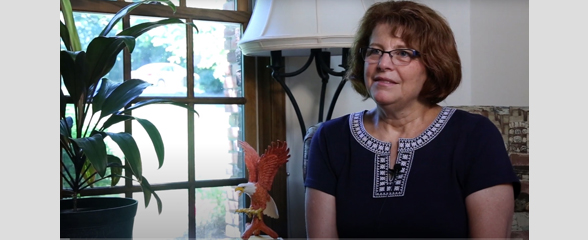
2018.034.004 Oral History Interview with Cindy Lobach
This oral history focuses on People of the Golden Vision’s treasurer and founding member Cindy Lobach, as she reflects on the role of the paper sculptures in the Golden Venture detainees’ eventual release. She discusses how the sculptures have ended up in many unexpected places, which speaks to their lasting cultural impact. Lobach reflects on how the detainment of the Golden Venture refugees and their beautiful artwork changed their supporters and the people of York. She also discusses how the creation of these paper sculptures gave the detainees hope for a better future. Lobach describes these refugees’ difficulties adapting to York and the racist attitudes many people have towards immigrants. She hopes that visitors to the exhibit will be come to understand that many immigrants who come to the United States undocumented do so because they are fleeing persecution and there is no other choice for them. She hopes the exhibit will show the potential of art to change lives.
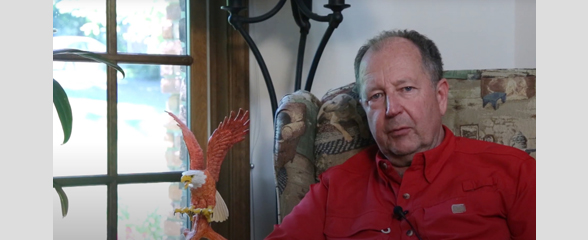
2018.034.005 Oral History Interview with Jeff Lobach July 9, 2017
This oral history focuses on Jeff Lobach, who was President of the Pennsylvania Bar Association at the time of the Golden Venture. He organized the lawyers who were trained for the purpose of defending the detainees of the Golden Venture. He speaks about his experience as a lawyer at the time, and how he faced frustrating rulings and resistance from the Justice Department. He worked to spread awareness about the Golden Venture at the time and discusses the significance of art and the sculptures in the movement. He also talks about how his personal life has been enriched by each of the asylum seekers whom he has defended as a lawyer.